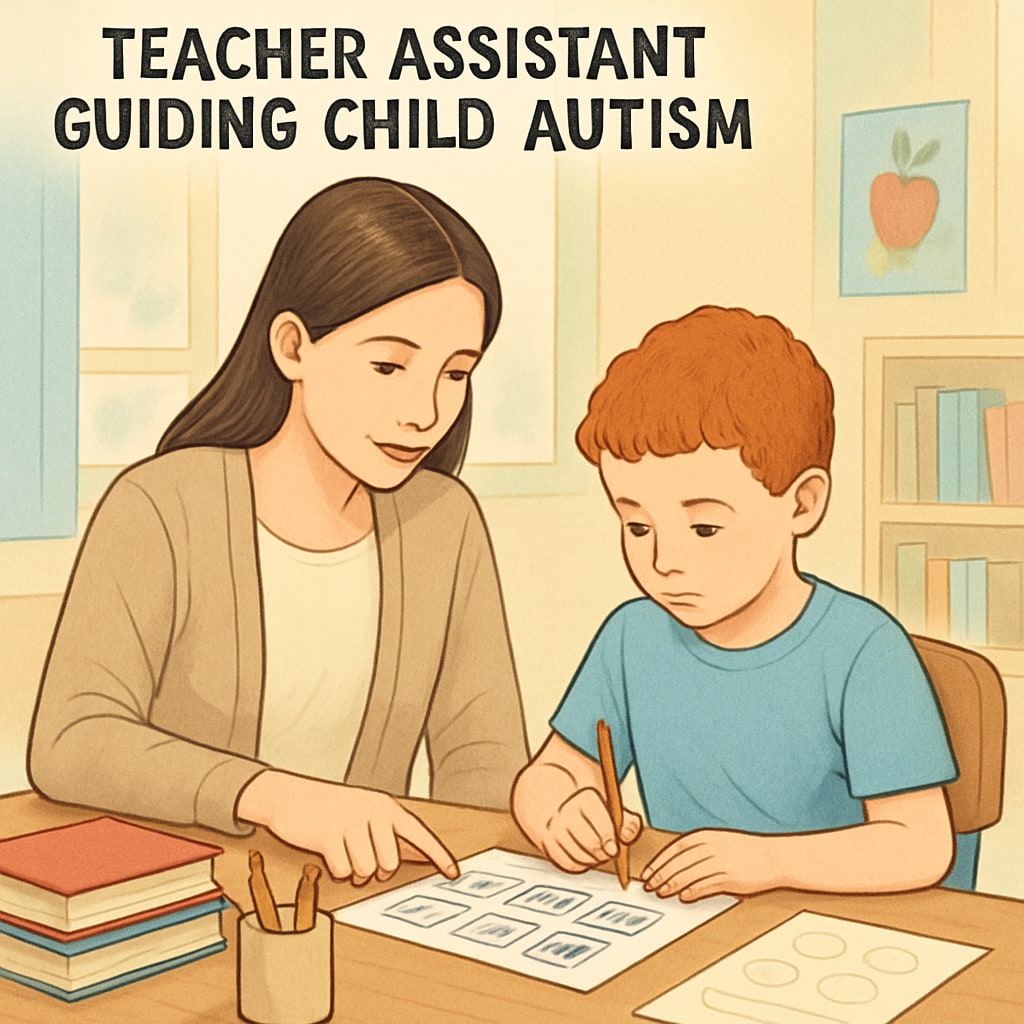Working as a teacher assistant in special education, especially in schools for children with autism spectrum disorder (ASD), is both a challenging and highly rewarding career. This role offers the opportunity to make a significant difference in the lives of students, helping them navigate their unique learning paths. In this article, we’ll explore how to effectively prepare for a school meeting or interview in this field, as well as the essential skills and mindset required to thrive as a teacher assistant.
Understanding the Role of a Special Education Teacher Assistant
A teacher assistant in special education provides essential support to both students and teachers. Their responsibilities may include assisting with lesson plans, managing classroom behavior, and offering one-on-one guidance to students on the autism spectrum. While every school and classroom may differ in approach, the ultimate goal is to create an inclusive and supportive learning environment.
For those new to the field, it’s important to familiarize yourself with the basics of autism spectrum disorder. Autism is a developmental condition that affects communication, social interaction, and behavior. Children with autism often have unique needs, which can require tailored teaching strategies and additional patience.

How to Prepare for a Special Education School Meeting or Interview
Whether you’re meeting with school administrators or parents, preparation is key. Here are some tips to ensure you make a great impression:
- Research the School: Learn about the school’s mission, values, and approach to special education. Familiarize yourself with their programs for children with autism.
- Understand the Needs: If possible, find out more about the specific needs of the students you will be working with. This shows your commitment and willingness to adapt to different situations.
- Prepare Examples: Be ready to discuss how you’ve handled challenging situations in the past, even if they are not directly related to special education. Highlight your problem-solving and interpersonal skills.
- Ask Questions: Demonstrate your interest by asking thoughtful questions about the role, such as the classroom structure, teacher-assistant collaboration, and professional development opportunities.
Lastly, remember to dress professionally and bring a copy of your resume or portfolio that showcases any relevant experience, certifications, or training.
Essential Skills for Success in Special Education
To excel as a teacher assistant in special education, you’ll need more than just a passion for helping others. Here are some critical skills and qualities to develop:
- Patience and Empathy: Working with children on the autism spectrum requires understanding, compassion, and the ability to remain calm under pressure.
- Strong Communication: You’ll need to effectively communicate with students, teachers, and parents. Nonverbal communication skills can also be valuable when working with nonverbal students.
- Adaptability: No two days in a special education classroom are the same. Being flexible and open to change is essential.
- Teamwork: Collaborating with teachers, therapists, and other staff members is a key part of this role. A cooperative attitude will go a long way.
- Organization: From managing schedules to keeping track of student progress, staying organized is crucial for maintaining a productive classroom environment.

Building a Rewarding Career in Special Education
Becoming a teacher assistant in special education is not just a job—it’s a calling. This role allows you to build meaningful connections with students and contribute to their growth and development. While the challenges may be significant, the rewards are immeasurable. Witnessing a child overcome a barrier or achieve a milestone is a moment that makes all the effort worthwhile.
For those looking to advance in this field, consider pursuing additional training or certifications in special education. Many organizations and universities offer programs designed for teacher assistants who want to deepen their knowledge and skills. For example, the Special Education entry on Britannica provides a great starting point for understanding the broader field.
In conclusion, working as a teacher assistant in special education offers a unique opportunity to make a lasting impact on the lives of children with autism. By preparing thoroughly for school meetings, cultivating essential skills, and embracing the daily challenges with a positive mindset, you can thrive in this meaningful and fulfilling career.


